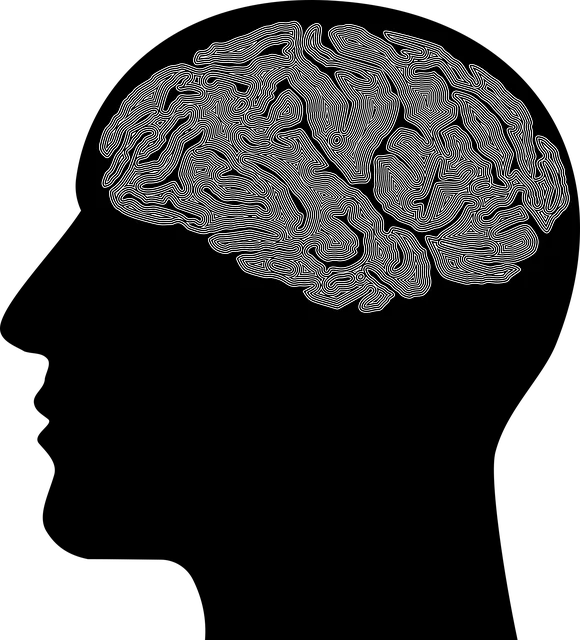Englewood Kaiser Permanente behavioral health services emphasizes comprehensive risk assessment and management in mental healthcare, focusing on both patient safety and provider well-being. Through self-awareness exercises, emotional regulation techniques, and stress management strategies, they enhance proactive risk identification. This approach, coupled with evidence-based practices and empathy-building strategies, fosters personalized treatment planning, resilience, and work-life balance for mental health professionals. Regular training, open dialogue, and robust clinical protocols ensure a supportive environment that addresses patient vulnerabilities and promotes positive mental well-being.
In today’s demanding mental health landscape, risk assessment is an indispensable tool for professionals. This article explores the critical role of comprehensive risk assessments in safeguarding patients, drawing insights from the successful practices of Englewood Kaiser Permanente Behavioral Health Services. We delve into key components, including identifying vulnerabilities and implementing strategies to mitigate risks effectively. By understanding these elements, mental health practitioners can enhance patient safety and foster positive outcomes.
- Understanding Risk Assessment in Mental Health Care
- The Role of Englewood Kaiser Permanente Behavioral Health Services
- Key Components of a Comprehensive Risk Assessment
- Strategies for Mitigating Risks and Ensuring Patient Safety
Understanding Risk Assessment in Mental Health Care

Risk assessment is a cornerstone of mental health care, enabling professionals to anticipate and mitigate potential risks that patients may face. At Englewood Kaiser Permanente behavioral health services, this process involves a comprehensive evaluation of various factors that could impact a patient’s well-being, both within and outside clinical settings. By integrating self-awareness exercises, emotional regulation techniques, and stress management strategies into routine practice, mental health professionals can enhance their ability to identify and address risks proactively.
This proactive approach not only ensures the safety of patients but also fosters effective treatment planning. Through regular risk assessments, professionals can tailor interventions to individual needs, promoting resilience and overall mental wellness. By staying attuned to emotional cues, understanding triggers, and implementing stress management techniques like those encouraged by Englewood Kaiser Permanente behavioral health services, mental health professionals can create a supportive environment that encourages growth and healing.
The Role of Englewood Kaiser Permanente Behavioral Health Services

Englewood Kaiser Permanente Behavioral Health Services plays a pivotal role in mitigating risks and fostering resilience among mental health professionals. With a robust framework focused on public awareness campaigns development and empathy building strategies, they empower healthcare providers to navigate complex emotional landscapes effectively. By integrating evidence-based practices, these services enhance coping mechanisms, promote work-life balance, and cultivate a supportive environment.
Moreover, addressing the pressing issue of burnout among mental health professionals is a core competency. Through innovative burnout prevention strategies for healthcare providers, Englewood Kaiser Permanente equips practitioners with tools to manage stress, maintain compassion, and sustain long-term career satisfaction. This proactive approach not only safeguards the well-being of individual practitioners but also ensures consistent and compassionate patient care within the community.
Key Components of a Comprehensive Risk Assessment

A comprehensive risk assessment for mental health professionals at Englewood Kaiser Permanente behavioral health services should encompass several key components to ensure a thorough understanding and effective management of potential risks. First, it’s crucial to evaluate the client’s present and past mental health history, including any diagnosed conditions, treatment experiences, and relevant family or personal circumstances. This foundation allows practitioners to recognize patterns and anticipate potential triggers that may impact the individual’s well-being.
Additionally, assessing the professional’s own emotional resilience, self-care practices, and empathy building strategies is essential. Mental health professionals are at risk of burnout and secondary trauma, so incorporating Mood Management techniques and maintaining robust Self-Care Practices is vital to prevent exhaustion and ensure sustained care for their clients. Englewood Kaiser Permanente behavioral health services prioritize these aspects in their risk assessment protocols, recognizing that a healthy practitioner is better equipped to provide effective support and navigation through complex emotional landscapes.
Strategies for Mitigating Risks and Ensuring Patient Safety

Englewood Kaiser Permanente behavioral health services emphasize a multifaceted approach to risk assessment, acknowledging that comprehensive patient safety necessitates more than just identifying vulnerabilities. Strategies for mitigating risks and ensuring patient well-being include implementing robust clinical protocols, regular staff training on mental health crisis management, and fostering an open dialogue culture where patients feel comfortable expressing concerns or distress. These proactive measures aim to anticipate potential hazards, from acute anxiety episodes to relapses of severe mental illness.
Moreover, integrating evidence-based practices into treatment plans empowers both patients and healthcare providers. Techniques focused on anxiety relief and resilience building, as espoused in the Mental Health Policy Analysis and Advocacy framework, play a pivotal role in enhancing coping mechanisms and mitigating risks. By adopting these strategies, Englewood Kaiser Permanente behavioral health services strive to create a supportive environment where individuals can safely navigate their mental health journeys, ultimately fostering positive outcomes and overall well-being.
Risk assessment is an indispensable tool in mental health care, as evidenced by Englewood Kaiser Permanente Behavioral Health Services’ effective implementation. By understanding key components like historical data analysis and environmental factors, professionals can conduct comprehensive risk assessments. This process enables the identification of potential hazards and the development of tailored strategies to mitigate risks, ensuring patient safety. Incorporating these practices, as demonstrated by Kaiser Permanente’s model, is crucial for fostering a secure and nurturing environment in mental health care.






